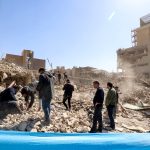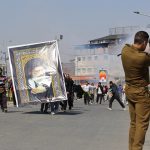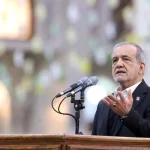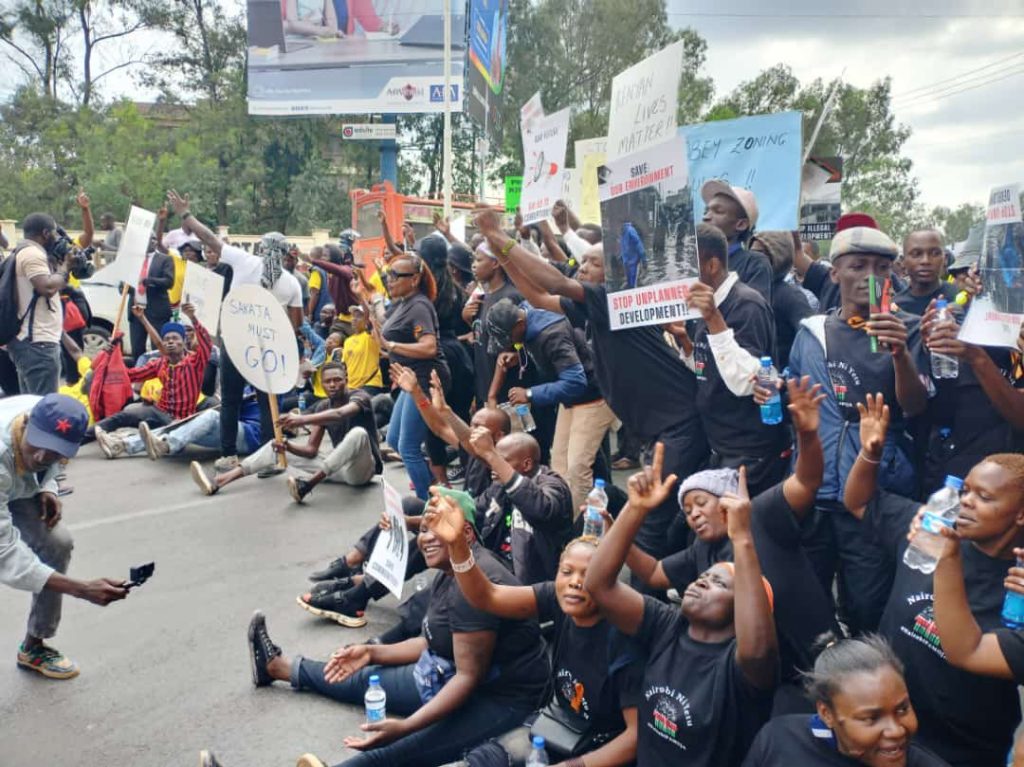
On Thursday, May 16, 2024, civil society groups, activists, and residents assembled in Jeevanjee Gardens for a peaceful march to protest against unplanned developments, construction cartels, and forced evictions that have disrupted the daily lives of the city’s residents.
The Nairobi Professional and Residents Group (NPRG), which unites representatives from professional bodies and residents’ associations within Nairobi City County, has been compelled to act against rampant rogue developers and corrupt public officials. Leading the march, NPRG intends to present their petitions to Parliament and City Hall, voicing their concerns over uncontrolled construction activities and the influence of powerful construction cartels in the city.
The Kenya Human Rights Commission has also criticized recent demolitions of houses on riparian lands, calling them injustices that mostly hurt the poor. Residents in these areas have been ordered to leave without being given new homes, leading to at least one death during the forced evictions.
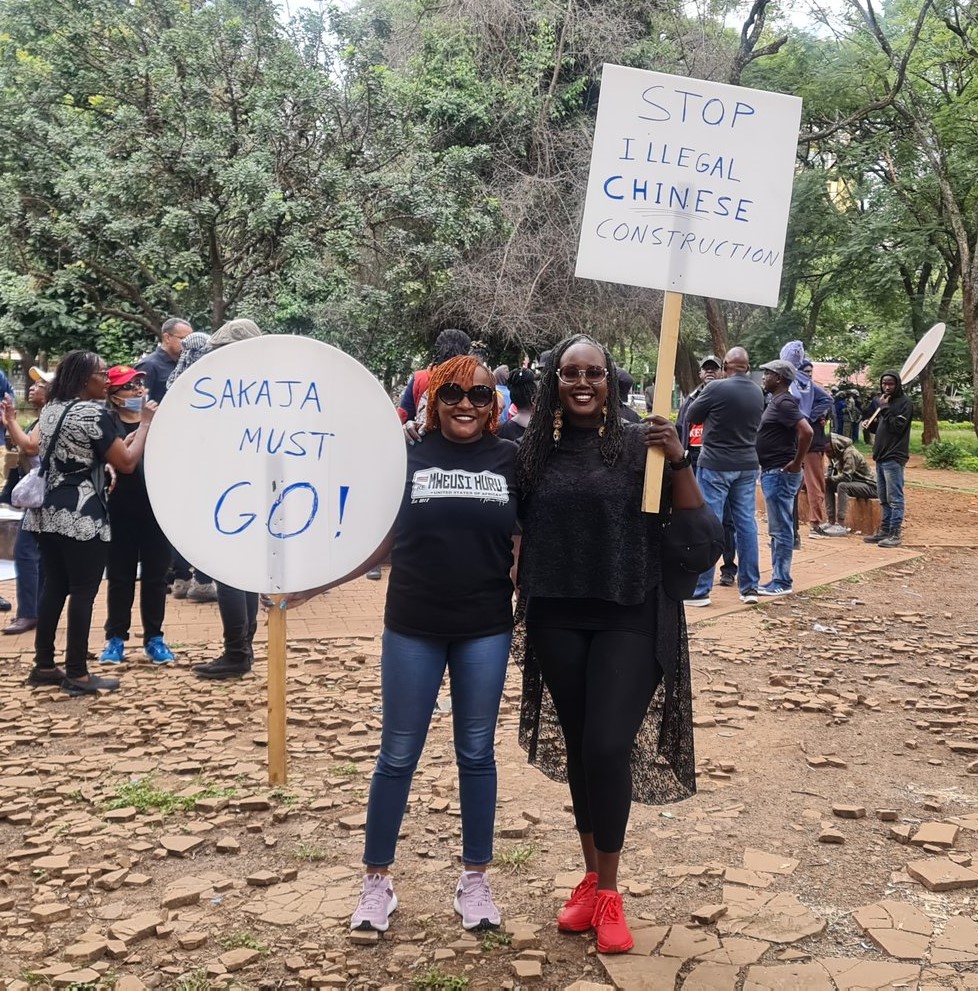
Activist Jerotich Seii who proudly identifies herself as an ‘Active Citizen,’ stood at the forefront, rallying the peaceful protest alongside other distinguished activists like Wanjeri Nderu. Seii has been boldly speaking out against illegal constructions, especially on riparian lands. She says these developments are harming essential services, causing water shortages, and creating traffic jams. Seii has criticized Chinese developers for ignoring rules and benefiting only themselves and their partners while harming Nairobi’s future.
Various stakeholders are pushing Nairobi Governor Johnson Sakaja to prioritize the expansion of critical infrastructure, including sewerage and water systems, waste management, public transportation, healthcare facilities, green spaces, and emergency services.
On March 23, 2024, Jerotich Seii through a post on X, expressed her concerns about Nairobi’s construction problems, comparing them to the colonial Scramble for Africa. She identified three main threats: the Chinese Property Developers Association in rich areas, Somali-led construction cartels in various neighborhoods, and government-led projects in public housing estates and slums. She warned that Nairobi has been sold to the highest bidders and that the government will not protect the city or its residents.
In a popular radio show’s morning interview, Seii described Nairobi as being on the brink of a health crisis due to uncollected garbage and sewage problems. She criticized the rise of high-rise buildings and the cutting down of trees, arguing that these actions worsen the city’s issues.
Seii also shared her experience pointing out Kilimani area particularly, where high-rise buildings have been constructed without proper public input or following zoning laws. She mentioned that community opposition and legal battles have not stopped developers from getting permits and continuing construction, often with the support of local authorities.
Seii has persistently and consistently advocated for a reassessment of Nairobi’s urban planning procedures, stressing the importance of inclusive development. She has urged residents to remain vigilant and demand accountability from authorities to safeguard Nairobi’s living standards.

